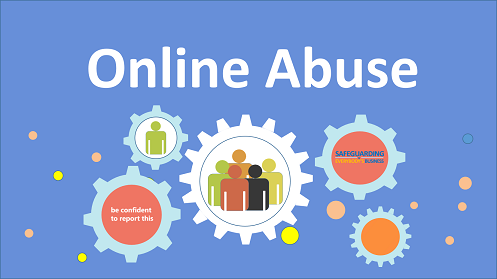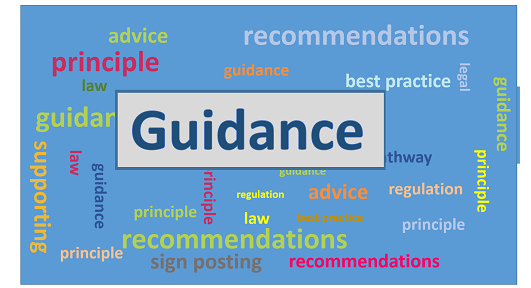Safeguarding News May 2023
Welcome to the latest SAFEcic newsletter covering news from May 2023.
Hot off the press and ahead of the summer break we have the newly published Keeping Children Safe in Education 2023 which comes into force from 1st September 2023. You can read our summary of the changes here.
Our Safeguarding Rapid Review Service remains incredibly popular and demand for this service is very high. If you are considering reviewing your safeguarding arrangements this service could prove invaluable.
Our latest training schedule is listed below and feel free to share this email with your colleagues and they too can join our newsletter database.
To sign up simply click here.
Services Update
SAFEcic is also accepting many more bookings for its face to face safeguarding training and audit services. There is also a packed calendar of blended learning events available to book for your organisation. The courses are a very cost effective way of training your staff and volunteers.
SAFEcic Blended Learning Training Calendar
Leading on Child and Adult Safeguarding
Safeguarding Training, Leading on Child and Adult. Online course plus Zoom
Thu 29 June 2023
10:30 - 12:00 GMT
Safeguarding Training, Leading on Child and Adult. Online course plus Zoom
Tue 11 July 2023
10:30 - 12:00 GMT
Safeguarding Training, Leading on Child and Adult. Online course plus Zoom
Wed 9 August 2023
10:30 - 12:00 GMT
Safeguarding Training, Leading on Child and Adult. Online course plus Zoom
Wed 20 September 2023
10:30 - 12:00 GMT
Safeguarding Training, Leading on Child and Adult. Online course plus Zoom
Wed 10 October 2023
10:30 - 12:00 GMT
Safeguarding Training, Leading on Child and Adult. Online course plus Zoom
Wed 22 November 2023
10:30 - 12:00 GMT
Safeguarding Training, Leading on Child and Adult. Online course plus Zoom
Tue 12 December 2023
10:30 - 12:00 GMT
Standard Child and Adult Safeguarding
Safeguarding Training, Standard Child and Adult. Online Course plus Zoom
Tue 4 July 2023
10:30 - 12:00 GMT
Safeguarding Training, Standard Child and Adult. Online Course plus Zoom
Mon 18 September 2023
10:30 - 12:00 GMT
Safeguarding Training, Standard Child and Adult. Online Course plus Zoom
Thu 30 November 2023
10:30 - 12:00 GMT
Safeguarding: Trustees’ legal responsibilities
Safeguarding: Trustees' legal responsibilities. Online Course plus Zoom
Wed 21 June 2023
10:00 - 11:30 GMT
Safeguarding: Trustees' legal responsibilities. Online Course plus Zoom
Thu 20 July 2023
10:00 - 11:30 GMT
Safeguarding: Trustees' legal responsibilities. Online Course plus Zoom
Thu 21 September 2023
10:00 - 11:30 GMT
Safeguarding: Trustees' legal responsibilities. Online Course plus Zoom
Tue 21 November 2023
10:00 - 11:30 GMT
Safer Recruitment Training. Online course plus 2 Hr Live Online training
Wed 12 July 2023
10:00 - 12:00 GMT
Safer Recruitment Training. Online course plus 2 Hr Live Online training
Tue 19 September 2023
10:00 - 12:00 GMT
Safer Recruitment Training. Online course plus 2 Hr Live Online training
Wed 1 November 2023
10:00 - 12:00 GMT
Safer Recruitment Training. Online course plus 2 Hr Live Online training
Thu 7 December 2023
10:00 - 12:00 GMT
SAFEcic's free hub resources by setting are available through the SAFEcic.co.uk main menu. Alternately you can bookmark the links below:
Education | Dental | Charities | GP & Primary Medical Services | Fath Groups | Entertainment & Leisure | Working Overseas |
Guidance
New guidance ' Hiring with Conviction' developed by Dominic Headley Associates (DHA) with the charity Working Chance has now been published and is simply a must-read for all employers across all sectors.
Hiring people with convictions isn't just about 'doing good' and giving people a chance; it makes sense from a business point of view too. But where do you start?
With this guidance in your hands, you'll have everything you need to start ethically and confidently hiring people with convictions. It is a unique resource designed for managers, HR professionals, and recruiters to guide you every step of the way..
N.B. The guidance also includes a really useful guide to carrying out online searches of job applicants
Inquiry and Review Reports

Independent Lessons Learnt Review into the Church of England’s handling of allegations against the late Revd Trevor Devamanikkam has been published.
Trevor Devamanikkam was due to appear in court in June 2017, charged with six counts of sexual abuse in the 1980s, against a 16-year-old. However, he did not arrive for the hearing and was found dead at his home later that day. An inquest found that he had died by suicide. In 2012 and 2013, the survivor, himself a member of clergy at the time, alleged he made a number of disclosures of non-recent abuse to senior clergy, and they failed to act on them.
The review was commissioned by the National Safeguarding Team, NST, and carried out by Jane Humphreys, a Senior Social Care Consultant, and previous Director of Children’s and Adult’s Services with a career spanning more than 30 years.
Its purpose was to identify both good practice and failings in the Church of England’s handling of the allegations, including its safeguarding practice, in order that the Church can take steps to enhance and improve its response to allegations of abuse and thereby ensure a safer environment for all.
The reviewer concludes that, although Trevor Devamanikkam was not convicted of the offences against him, the survivor was sexually abused by him. She makes a number of recommendations for the Church including about lessons learnt reviews and responding well to survivors; as well as the need for clear guidance to all clergy and Church officers as to what they should do and who they should take advice from if copied into an allegation of abuse.
She also addresses and outlines the survivor’s request not to engage with the Review, noting that she has drawn on his written experiences and accounts of events from his submission to the Independent Inquiry into Child Sexual Abuse (IICSA) in July 2019, and from other documents.
Research Reports, Consultations and Studies

1. Exploring Children’s Rights & AI
Children’s Parliament (Scotland) has embarked on an exciting new project to explore the world of Artificial Intelligence (AI) with children across Scotland. Working with partners The Alan Turing Institute (ATI) and the Scottish AI Alliance (SAIA), they are finding out how children interact with AI, what they think the possibilities and risks are for the use of AI for children in Scotland, and how children can become meaningfully involved in AI development and policy.
Taking a children’s rights approach, they have been asking Members of Children’s Parliament to think about what needs to happen for AI to play a role in keeping all children happy, healthy, and safe. To try to capture as broad a range of views as possible and to reflect the diversity of experiences of children in Scotland, they are working with classes ranging from P4 to P6 in four schools in different locations across Scotland: Glasgow, Stirlingshire, Edinburgh, and Shetland.
The children’s work has narrowed the focus of the next two stages of the project to the four following themes, which the children have identified as areas that need further exploration:
- Fairness and Bias
- Safety and Security
- AI and Education
- The Future of AI
2. The Law Commission has published proposals for reform of sexual offences prosecutions.
Every year in England and Wales, around 128,000 adults – over 90% of them women – report to the Crime Survey of England and Wales that they are victims of rape or attempted rape. The trial process is an integral step to accessing justice.
As part of its 2021 End-to-End Rape Review, the Government asked the Law Commission to examine the law relating to the use of evidence in sexual offences prosecutions. While progress has been made, evidence shows that the criminal justice process for rape and serious sexual offences is still flawed, and more can be done to ensure sexual offences are tried justly, without traumatising complainants.
In its new consultation paper, the Law Commission sets out proposals aimed at countering the effects of rape myths and misconceptions on the trial process, treating complainants humanely, and ensuring that defendants receive a fair trial.
They include:
- A bespoke regime for access, disclosure and use of complainants’ personal records, including counselling notes. This regime would include judicial oversight of whether and how these records should be used, considering factors such as the complainant’s right to privacy and the importance of the records to the defendant’s case.
- New framework for restricting the use of evidence of complainants’ sexual behaviour and compensation claims. When deciding whether to admit this type of evidence, the judge would consider factors such as the risk of perpetuating myths and misconceptions and the defendant’s right to a fair trial.
- Giving complainants an automatic entitlement to measures to assist them to give evidence, such as giving evidence over live link, or in private (with an exemption that allows press attendance).
- Independent legal advice and representation for complainants, which would allow them to make informed decisions about the way their evidence is given and used, and to participate in decisions about the use of their sensitive personal information.
- The paper also considers the use of educational tools that could help minimise the impact of rape myths on jury decision-making. These could include, for example, the use of expert evidence to explain the complex physical and psychological responses to sexual violence.
The Law Commission is seeking responses to its consultation paper by 29 September 2023.
Resources

1. Stalkers and domestic abusers to be targeted as millions invested in new intervention projects
Police forces across England and Wales will weed out domestic abuse and stalking behaviour with a raft of new intervention measures supported by government. Backed by up to £39 million, 50 projects will be rolled out over the next 2 years, supporting initiatives to stop abusers from repeatedly targeting victims and terrorising vulnerable people.
Many domestic abusers are repeat offenders with 83% of male offenders repeating their offences within a 6-month period. This makes intervening to stop their pattern of behaviour paramount to protect victims. One project, in the West Midlands, is ensuring that domestic abusers and people who display stalking behaviours are closely monitored and given early psychological intervention to change their behaviour before it gets worse. Gloucestershire Constabulary is training more frontline officers to spot signs of domestic abuse and intervene with perpetrators.
Several forces, including Lancashire, Avon and Somerset and the Metropolitan Police Service are rolling out the Drive Project, which focuses on the most serious offenders to prevent them from abusing again, working with partner agencies such as social services to challenge perpetrators to change their abusive behaviour. This works by putting barriers in place to prevent abuse and ensuring perpetrators experience the full consequences if they continue to be violent and abusive.
Evaluation from the Drive Project, which has been running for 7 years, has shown an 82% reduction in physical abuse and 75% reduction in harassment and stalking.
2. Child sexual abuse redress scheme to be established in England, recognising the trauma victims have suffered. Set up on the back of the Independent Inquiry into Child Sexual Abuse (IICSA), the scheme will acknowledge the institutional failures that allowed children to suffer at the hands of despicable predators. Victims, survivors and charities representing them will be closely consulted as the government develops the scheme, including asking who the scheme should support, how we can best help them and how non-state institutions should be involved.
The government is also moving quickly to introduce mandatory reporting of child sexual abuse in England, which will make it a legal requirement for those who work with children and young people to speak out if they suspect a child is being sexually abused or exploited. This will help to prevent the continued abuse of children and ensure that they receive support earlier. A 12-week public call for evidence has been launched, asking how this should be implemented.
As part of its response to the Independent Inquiry into Child Sexual Abuse, the government is also:
- looking at ways to improve access to therapeutic support for victims and survivors
- improving the way police collect data on child sexual abuse to better understand the scale and nature of the crime
- driving forward the world-leading Online Safety Bill, which will place clear legal duties on companies to remove child sexual abuse material and keep children safe on their services
- reforming the child protection system to make sure children are better protected
- looking at options to extend the list of people barred from working with children
Online Safety

1. Professionals Online Safety Helpline releases annual report
The United Kingdom Safer Internet Centre (UKSIC) states:
“The internet has revolutionised the way we communicate, work, and access information. However, with these benefits come risks, particularly in terms of online safety for young people. We recognise these risks and provide a number of services to help individuals navigate online issues and harmful content.
One of these services is the Professionals Online Safety Helpline (POSH), which is operated by one of their partners, SWGfL. The Professionals Online Safety Helpline has been in operation since 2011 and supports any professional working with children and young people with any online safety issue that they, or the young people in their care, may be facing.
“The Helpline has now released their latest report revealing findings and trends between November 1st 2021 – November 1st 2022, which saw a 500% increase in enquiries to the Helpline, with 4,078 recorded cases. The report found that professionals were contacting the Helpline to improve their understanding of online safeguarding issues, or to clarify whether there was a need to escalate their concerns further.
“According to the report, the majority of enquiries concerned social media content that could negatively impact a school’s reputation and professional standing. Findings also revealed that many professionals contacting the Helpline were not aware of the support available to help them to block and report content on social media.
“These findings demonstrate the importance of the Online Safety Bill addressing platform liability. However, as many of the harms disclosed to the Helpline would not be in the scope of the bill, it is essential to support multiple stakeholders in the online safety space to reduce online harms. These findings emphasise the importance of online safety training for educational professionals, which SWGfL delivers through free Online Safety Live sessions. (Run in partnership with UKSIC).
2. Trolls who encourage serious self-harm to face jail
Vile trolls who hide behind the anonymity of the internet to encourage others to cause themselves serious harm will face prosecution as part of an overhaul of online safety laws has been announced.
Additions to the Online Safety Bill will make it a crime to encourage someone to cause serious self-harm, regardless of whether or not victims go on to injure themselves and those convicted face up to 5 years in prison. The new offence will add to existing laws which make it illegal to encourage or assist someone to take their own life.
Police or prosecutors will only have to prove communication was intended to encourage or assist serious self-harm amounting to grievous bodily harm (GBH) – this could include serious injuries such as broken bones or permanent physical scarring. The offence will apply even where the perpetrator does not know the person they are targeting - putting an end to abhorrent trolling that risks serious self-harm or life-changing injuries. Encouraging someone to starve themselves or not take prescribed medication will also be covered.
Research from the Mental Health Foundation shows that more than a quarter of women between 16-24 have reported self-harm at some point in their life and since 1993 the levels of self-harm among women have tripled. Today’s announcement is the latest step in our work to provide greater protections for women and girls who are more likely to self-harm. Research also shows more than two-thirds of UK adults are concerned about seeing content that promotes or advocates self-harm while online.
The new offence will be created following a recommendation from the Law Commission in 2021 and balances the need to protect vulnerable people while not criminalising those who document their own self-harm as part of their recovery journey. It builds on measures already in the Online Safety Bill, which will better regulate social media and ensure that social media companies are held legally responsible for the content on their sites.
3. LIBE Committee’s (Committee on Civil Liberties, Justice and Home Affairs) (IWF) Draft report on vital EU proposal to stop child sexual abuse welcomed as ‘strong and balanced’
The IWF has added its voice to an open letter from child rights organisations who are members of the European Child Sexual Abuse Legislation Advocacy Group (ECLAG). The letter praised the full scope of the report and its desire for the legislation to tackle child sexual abuse in all its forms, including known child sexual abuse material (CSAM), unknown CSAM and grooming.
ECLAG approves of the draft report’s ‘crucial’ recognition of the need to continue existing voluntary detection schemes for CSAM and grooming, as this should be acknowledged as an important part of technology companies’ risk mitigation processes and has lauded the inclusion of a Victims’ Consultative Forum as a ‘huge step forward’ in ensuring that the voices of child sexual abuse survivors are heard.
The letter also highlighted that a key pillar of the EU proposal is tech neutrality and warned that exceptions for specific technologies, such as end-to-end encryption, leaves victims at risk and could mean the actions of criminals go undetected. The letter’s authors urge MEPs to allow for innovation of ‘the most cutting-edge privacy-preserving tools, while ensuring strong safeguards.
Online Abuse

1.Youth worker devised fantasy world to abuse teenage boys online
A former children’s holiday camp manager who groomed more than 70 teenage boys online by pretending to be a 16-year-old girl has pleaded guilty.
The National Crime Agency investigated Cameron Osman, 44, from Southampton, who used the online alias ‘Lizzielemon’ to identify his victims on Instagram, MyLol and Love Crush, before moving them on to Google Hangouts, Discord and Skype.
He engaged them in sexualised chat revolving around a fantasy online world with Osman pretending to be a teenage girl. He never identified himself, instead telling victims his camera was broken. Osman would tell his victims that ‘Lizzielemon’ was from Bristol or Birmingham, that he had a fetish for dominating boys in school uniform and sports kit, and for conducting teacher/student role plays. The offending took place between 2020 and 2021.
The NCA tracked Osman down to a friend’s address in Crowborough, East Sussex, in September 2021 and arrested him. He had resigned from his job at a holiday camp activity centre in Hailsham a few days earlier. His laptop and mobile phone were seized, and Osman was found to have contacted 76 boys in the UK aged between 12 and 16 during the offending period. All have been safeguarded. Officers found no evidence of Osman grooming children at the activity centre.
Investigators in the United States also uncovered chat logs showing sexualised communication by Osman with underage boys in 27 countries. He also searched online for underage boys in Columbia, where he was planning to visit. Osman was released on bail as the investigation continued, but proceeded to offend again, leading to his arrest on 27 March this year after a further victim was identified. Osman pretended to be a man on this occasion and shared photos of himself.
Osman appeared at St Albans Crown Court on 2 May 2023, where he pleaded guilty to 36 separate charges, including attempting to incite a child to engage in sexual activity, causing a child to engage in sexual activity, sexual communication with a child, and making two category C indecent images of children. Osman is due to be sentenced at the same court on Friday, 30 June.
The NCA’s CEOP Education programme supports parents, carers, children and the professionals to ensure young people have safe and positive experiences online. Anyone being pressured or threatened into sending sexual images or videos online should remove themselves immediately from the conversation, not respond further to any contact, and report the matter to police or a trusted adult. There are a range of resources available on our website, thinkuknow.co.uk, for adults – to support them in navigating the online world and conversations about it with their children, and children themselves – to help build their resilience online and learn what to do if something doesn’t seem right.
2. Pensioner who directed live streamed child sex abuse jailed
A former coach driver who made more than 600 payments to direct and live stream the sexual abuse of children has been sentenced to eight years. Bernard Grace, 72, from Wythenshawe, Manchester, was investigated by National Crime Agency officers after intelligence suggested he had made a number of electronic money transfers to a woman in the Philippines. NCA investigators established that Grace, who used to transport children as part of his job, was paying people in the Philippines in exchange for live streaming of sexual abuse.
Searches of Grace’s home when he was arrested in March 2021 resulted in the seizure of a laptop. Enquires into GRACE’s financial activity showed he had made payments totalling over £20,000 to various women between January 2015 and March 2021.The laptop was forensically examined and 23 Skype chats between Grace and Filipino women were found where he offered to make, or had made, payments. These included a payment to a woman under investigation in the Philippines for sex trafficking offences. When interviewed, Grace admitted making the payments.
Grace was charged with 11 counts of arranging or facilitating the commission of a child sex offence and two counts of making an indecent image of a child. He pleaded guilty during a previous hearing at Manchester Crown Court and was sentenced at the same court on Friday 12 May.
Frauds and Scams

Prime Minister Rishi Sunak announces Fraud Strategy
“Fraud now accounts for over 40% of crime. It costs us nearly £7 billion a year and it is known these proceeds are funding organised crime and terror. What’s more, new technologies are making these scams easier to do and harder to police. It’s time to take the fight to the scammers and fraudsters and put an end to these crimes which can devastate lives and livelihoods within seconds.
We’re launching our new plan to tackle fraud. This is how the new measures will affect you.
We’re going to stop scams reaching people in the first place
Modern technology has opened up new ways for criminals to bombard people with a barrage of fake calls, texts, emails and WhatsApp messages.
Here’s how we’re going to stop it:
- We will outlaw so-called “SIM farms”, technical devices that allow criminals to scam texts to thousands of people at the same time
- We will work with Ofcom to stop more cases of number ‘spoofing’, where scammers impersonate UK numbers and trick people into thinking they’re speaking to banks, telephone companies or other legitimate businesses
- We will ban cold calls on all financial products, so that anyone who receives calls trying to sell them products such as crypto currency schemes or insurance will know it’s a scam
We will bring more fraudsters to justice
Here’s how we’ll make sure the scammers responsible face up to their crimes:
- By launching a new National Fraud Squad led by the National Crime Agency and the City of London Police – backed by 400 new posts
- We’ll step up work with international partners and make greater use of the UK’s intelligence community to identify and disrupt more fraudsters overseas
We will empower people to better protect themselves
We know that often when you fall victim to a scam, people feel upset, panicked, or embarrassed about being caught out, or worried about whether they’ll ever get their money back.
Here’s how we’ll help protect you:
- By investing £30 million in a state-of-the-art reporting centre which will be up and running in the year
- We’re also working with tech companies to make it as simple as possible to report fraud online. Regardless of which social media platform you are on, you should be able to find the ‘report’ button within a single click
- Looking at giving banks more time to process payments, to allow suspicious payments to be investigated and stopping people from falling victim to fraudsters”
Worthy of Note

1. 468 arrests made and 170 knives seized during Op Sceptre week of action
During a national operation, the Met intensified tactics and activity to target knife crime and wider violence, making 468 arrests, with 170 knives taken off the streets in just one week. Officers from across the Met carried out a range of operational activity for Operation Sceptre, including increased proactive patrols in violence hotspots; executing warrants at addresses; and sweeps in areas known for hiding knives and weapons.
In one instance, local officers were joined by British Transport Police (BTP) colleagues, a father who lost his son to knife crime, and a local community activist, on a proactive operation tackling knife crime on the transport network in Croydon, before conducting a weapons sweep in the area.
Other activity conducted with BTP included joint operations where knife arches were deployed at transport hubs to deter people from carrying weapons and drugs on train and tube services. Met’s Police Cadets also assisted officers on Op Sceptre activity through test purchase operations by visiting businesses to educate them and ensure they were not – and do not in the future – sell knives irresponsibly.
One piece of activity saw officers from the East Area engage with young people and the wider community at Seven Kings Skate Park where they highlighted the dangers of knife crime.
In total the operation, which ran from Monday, 15 May to Sunday, 21 May, resulted in:
- 170 knives recovered
- 468 arrests;
- 22 warrants;
- 177 community meetings and educational events, engaging with 1,627 individuals;
- 212 school presentations and engagements, involving 6,712 young people;
- 194 retailer visits;
- 1,195 weapon sweeps.
We all have a part to play in tackling violent crime. It can be as simple as giving information about an incident or those who carry a weapon. Any information you give to the independent charity Crimestoppers can make a difference in reducing knife crime and the harm it causes to families. Fill in their quick online form or call 0800 555 111 – 100% anonymously. It could save a life.
2. Outcome of misconduct hearing for former police officer
A gross misconduct hearing has found a former West Mercia Police officer would have been dismissed from the force had he not already resigned. The hearing upheld an allegation that the conduct of former PC Mark Hidden, 42, amounted to serious breaches of Standards of Professional Behaviour. Between December 2019 and April 2020, the former PC, who was previously based in Shropshire, pursued an improper relationship with a vulnerable person he had met through the course of his duties and engaged in sexual activity with whilst on duty.
In November 2019 he searched and accessed personal data on police systems without a genuine policing purpose and on two occasions in April 2020 he breached COVID restrictions without a genuine policing purpose. The breaches related to his improper relationship. Between January 2020 and May 2020, he used his work mobile phone to send and receive messages of a sexual nature primarily whilst on duty.
The hearing found his actions breached the standards of authority, respect, and courtesy; confidentiality; orders and instruction; and discreditable conduct. An investigation was immediately launched when the matter came to light in May 2020. He was subsequently suspended and in 2022 he resigned from the force. Mark Hidden will now be added to the College of Policing’s Barred List banning him from working for a UK police service in the future.
The outcome of the hearing is subject to the normal appeals process.
3. No more free vapes for children and young people
A loophole that allows the vaping industry to give free samples of vapes to children in England is set to be closed under new plans announced by the Prime Minister to clamp down on youth vaping. This comes as recent NHS figures for 2021 showed that 9% of 11- to 15-year-old children used e-cigarettes, up from 6% in 2018.Selling vapes to under 18s is illegal, however it is clear from this recent rise in teenage usage of vapes and the recent surge in the use and promotion of cheap, colourful products that businesses are targeting children, which has prompted today’s action to crack down on this. The government has also announced today that there will be a review into banning the vaping industry selling ‘nicotine-free’ vapes to under 18s. This will ensure our rules keep up with the way that vaping products are being used.
The new plans follow the announcement last month of £3 million of funding which has been provided to create a specialised ‘illicit vapes enforcement squad' to implement the rules on vaping and tackle illicit vapes and underage sales. The squad - which will work with enforcement agencies and learn from the government’s work with Trading Standards on illicit tobacco - will also tackle online shops selling illicit vapes to under 18s. A call for evidence on youth vaping launched last month will build on this by looking at evidence into the appeal of vapes as well as the marketing and promotion of vapes, including on social media, to identify opportunities to reduce the number of children accessing and using vape products - and explore where government can go further.
The Office for Health Improvement and Disparities is also developing a new resource pack for schools on vaping, intended for children aged 11 to 13. The educational resource for young people will inform them about the addictiveness of nicotine and the evidence that young people’s developing brains may be more sensitive to its effects. It will also inform them about other potential health risks, while making clear the distinction between these risks and the known serious health harm associated with smoking tobacco. This will be made available via the Better Health School Zone website by July.
Schools can also access a Year 9 PSHE lesson on the consequences of vaping via the PSHE Association website.
Reasons to Remain Vigilant in All Aspects of Safeguarding
1. Man jailed for sexually assaulting a six-year-old
A man from Southampton who sexually assaulted a young girl and took indecent images of another child has been jailed for five-and-a-half-years. John Shannon, 58, was arrested by the National Crime Agency in September 2022, after investigators identified a woman they believed had been the victim of child sexual abuse.
Enquiries established that in 2010, Shannon had sexually assaulted her while she was six years old and in his care. He was released on conditional bail and NCA officers seized his phone and laptop for analysis. Child abuse material was recovered, including a category A video and 13 category C images of a man and a child. Investigators were able to prove that it was Shannon in the photos and that he had taken them himself, with records showing he had travelled to the location where the photos were taken. The child – a ten-year-old girl – was also identified and safeguarded. Shannon was re-arrested in December 2022 and further charged in relation to the additional offences.
Earlier this year at Southampton Crown Court, Shannon pleaded guilty to five offences including the sexual assault of a child under 13, taking and possessing indecent images of children in categories A and C, and possession of an extreme pornographic image. He was sentenced to five years and six months in prison and will be subject to an indefinite sexual harm prevention order.
2. Former government minister jailed for making and distributing indecent images of children
An ex-Government minister and former MP has been jailed for making and distributing indecent images of children.
On the 12 May 2023, Paul Clark, 66, who represented Gillingham between 1997 and 2010 and was the Parliamentary Under Secretary of State for Transport from 2008 to 2010, was sentenced to 28 months imprisonment at Maidstone Crown Court today. He has also been issued with a 10-year Sexual Harm Prevention Order and must sign the sex offenders’ register.
The CPS authorised charges against Clark, who pleaded guilty to three counts of making indecent images of children and six counts of distributing indecent images of children between April 2013 and May 2021. The court heard that when Clark was arrested at his home address by the National Crime Agency (NCA) he initially made no comment, but later said to officers, “I know why you’re here”, and “I kept telling myself to stop”. When interviewed under caution, on two occasions he replied no comment to all questions asked.
A variety of digital equipment was seized from Clark’s address which provided a significant amount of digital evidence, including a total of 1,446 indecent images of children as well as conversations in which he received and distributed indecent images to others. The court was told that there was no evidence that any of the offending took place while Clark was in office.
3. Former Deputy Head Teacher charged with additional child sexual abuse offences
A former deputy head teacher of a primary school has been charged with an additional 17 counts of child sexual abuse as part of a National Crime Agency investigation. Matthew Smith, 34, was arrested by NCA officers at his home in East Dulwich in November 2022. He was charged with five counts, including causing the sexual exploitation and abuse of a child under 13, distributing indecent images of children (IIOC) in category A, and three counts of making IIOC in categories A-C.
Smith pleaded guilty to those charges days after his arrest and has been remanded in custody since.
On May 23 2023 he appeared at Westminster Magistrates Court charged with 17 counts, including encouraging the rape of a child under 13, causing a child under 13 to engage in sexual activity, and arranging the sexual abuse of a child. The charges relate to the suspected commissioning of the sexual abuse of children in India via the internet between 2017-2022.
Smith was living in Nepal and working at a school for the majority of this time. He moved back to the UK in July 2022 and began working at the primary school in London, where he was a deputy head teacher and head of pastoral care. The investigation has found no evidence of offending by Smith against children based in Nepal or the UK. Smith also faces six counts of making and distributing over 120,000 IIOC in categories A-C.
4. Children's mental health worker who sexually groomed patients on Snapchat convicted
A mental healthcare assistant who groomed vulnerable underage patients at the clinic where he worked into sending sexualised images has been convicted. Daniel Knight, 32, from Burton-On-Trent in Staffordshire, was investigated by the National Crime Agency after one of his victims submitted a report via the Click CEOP tool. The teenage girl said Knight contacted her via Snapchat after they met at the Child and Adolescent Mental Health Services (CAMHS) facility where she was a patient. He instigated sexualised chat and encouraged her to send indecent images and videos of herself. He sent her photos of himself in return and also attempted to meet her for sexual purposes, even though he knew she was underage. NCA officers arrested Knight in April last year. The photos he had sent the teenager did not show his face, but officers were able to prove it was him after recovering clothing from his house which matched those in the images. The initial victim helped officers identify another two underage victims at the same CAMHS facility, both of whom reported Knight had contacted them via Snapchat.
One of them said he had offered to buy her cocaine and alcohol and meet up with her, and that she had sent Knight dozens of photos of herself. Investigators spoke with another seven witnesses, all of whom said Knight attempted to contact them in a sexualised way. However, they never engaged in online conversations with him.
He admitted three charges of encouraging the commission of an offence and two counts of making indecent images of children at Stafford Crown Court. He denied one count of stalking and two counts of breaching an interim Sexual Risk Order and will face trial for these offences at the same court on 9 October this year. He will be sentenced for the offences he admitted after this trial concludes.
And Finally
Warning to parents on baby bath seats
The Senior Coroner County of Cumbria has issued a Regulation 28 Report to Prevent Future Deaths following the tragic death of 9 month baby Chester Alan Stanley MOSSOP died on 3 June 2022 following an incident at his home address on 29 May 2022. Baby Chester’s death was reported to HM Coroner for Cumbria on 6 June 2022 and his death formally transferred from HM Coroner Newcastle. An investigation into his death (in accordance with Section 1 Coroners and Justice Act) was commenced on the same day. Chester was placed in a bath seat in a bath of warm water at his home. After approximately 20 minutes of bath time, Chester was left alone in his bath seat. After a few minutes, Chester was found face down in the bath, the bath seat having become unfixed. Chester was given immediate CPR which was continued by attending police, paramedics and clinicians. Chester was conveyed to the Great North Children's' Hospital at the Royal Victoria Infirmary by air ambulance. Everything was done to try to save Chester's life. However, an MRI scan showed that Chester had sustained an unsurvivable brain injury due to drowning.
Following the coroner’s report, the Child Accident Prevention Trust provides this information:
Why are babies at risk of drowning?
Babies can drown in just a few centimetres of water, very quickly and with no noise or struggle.
In this case, the coroner heard that there had been “no sounds that Chester was in distress or difficulty” when he went under the water.
Babies can’t recognise danger and don’t have the strength to try to reach the surface. So, when their head slips under the bathwater, it stays there.
Baby bath seats give parents a false sense of security
While bath seats can be a useful tool in helping busy parents at bath-time, it’s important to remember they’re just a support, and NOT a safety device.
The product marketing may talk about strong suction pads or a non-slip seat to ensure your baby is held safely in place. But other tragedies show how seats have come away from the bath and babies have slipped under the water and drowned.
Our advice – keep your baby in arm’s reach
Stay with your baby all the time when they’re in the bath. It’s not safe to pop out and leave them, even for a few seconds.
And keep your baby in arm’s reach while they’re in water.
When you’re juggling demands, it’s easy to think that an older child can briefly look after a younger child or at least raise the alarm if something goes wrong.
But older children shouldn’t be left in charge. They can’t be expected to know what to do if something happens, may not recognise the danger or react quickly enough and may lack the strength or dexterity to get the baby out of danger.
Share because you care
We’re worried that bath seats give parents a false sense of security. Please share this story and what you’ve learnt with other families, to help stop more tragedies.





